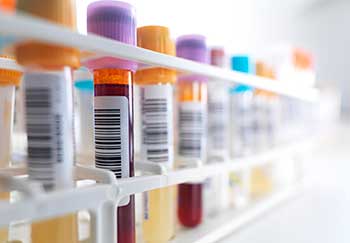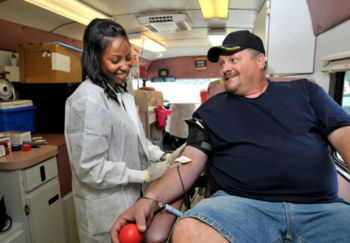
When you go to the doctor for routine physical exams, your doctor usually sends you to the lab for blood work. This may be an inconvenience, but the importance of blood testing can’t be overstated. Your blood provides clues to how your body is working and can be the first indication of a problem.
Types of Blood Tests
Not all blood tests are the same. Here are some types of blood tests and what they might indicate:
Complete Blood Count (CBC)
This measures your number of red and white blood cells, in addition to your hemoglobin, hematocrit and other important blood values. Numbers outside the normal range can indicate infection, an immune system disorder, anemia and cancer.
Lipoprotein
This test measures your cholesterol levels or the fats in your blood. They’re broken down into HDL (the good cholesterol), LDL (the bad cholesterol) and triglycerides. The results help determine if you’re at increased risk for heart disease.
Blood Glucose
If you’re asked to fast for 9 to 12 hours before the blood test, that’s partly because your doctor wants to see your blood glucose levels. (Fasting is also sometimes requested for lipoprotein measurement.) With blood glucose, your doctor is looking for signs of diabetes or prediabetes.
Metabolic Panel
Results from a metabolic panel indicate if you have potential issues with muscles like your heart, kidney or liver function and even your bones. There are also separate blood tests that look for kidney function, like blood urea nitrogen (BUN) and creatinine levels.
Clotting Factor
If you have certain medical issues or you’re taking blood thinners, this test is frequently used to make sure your blood is clotting properly. Numbers out of the normal range mean you need more testing or a change to the dose of a medication. A normal clotting factor helps you avoid excessive blood loss.
Blood Tests That Diagnose Cancer
For most cancers, blood tests aren’t diagnostic, though they provide helpful clues about how your body is working. Doctors do need blood tests to diagnose hematologic or blood cancers, however. The complete blood count test to looks for for high or low counts of different blood cells and also for abnormal blood cells.
Low counts of these white blood cell types can indicate malignancies of the blood or bone marrow:
- Neutrophils
- Lymphocytes
- Monocytes
- Eosinophils
- Basophils
A low neutrophil count, for instance, means you have LGL leukemia. a specific type of leukemia discovered by UVA Cancer Center director, Thomas P. Loughran, Jr., MD.
Other types of blood tests that detect cancer include checking blood proteins for immunoglobulins (abnormal immune system proteins), which tend to be elevated in multiple myeloma patients.
Some blood tests look for chemicals that point to the presence of specific tumors.
Need a Blood Test?
We have labs in various locations where you can drop in to get blood work.
What If My Blood Tests are Abnormal?
If you have an abnormal blood test, your doctor may ask you to retest on a different day. Sometimes the counts are off temporarily due to your diet, menstruation, medications, alcohol intake or physical activity. Different labs also might have slightly different results. Your doctor’s next steps will depend on how abnormal the counts are, your current state of health, your personal risk factors for certain diseases and your medical history.
A blood test usually isn’t the definitive way to diagnose a medical problem, but your blood can provide vital clues about what’s happening inside your body. The importance of blood testing is paired with the significance of checking your vital signs and breathing rates, going over your medical history, conducting a physical exam plus other diagnostic testing. Ask your physician what the results mean if you get abnormal blood test results and whether or not further evaluation is necessary.

